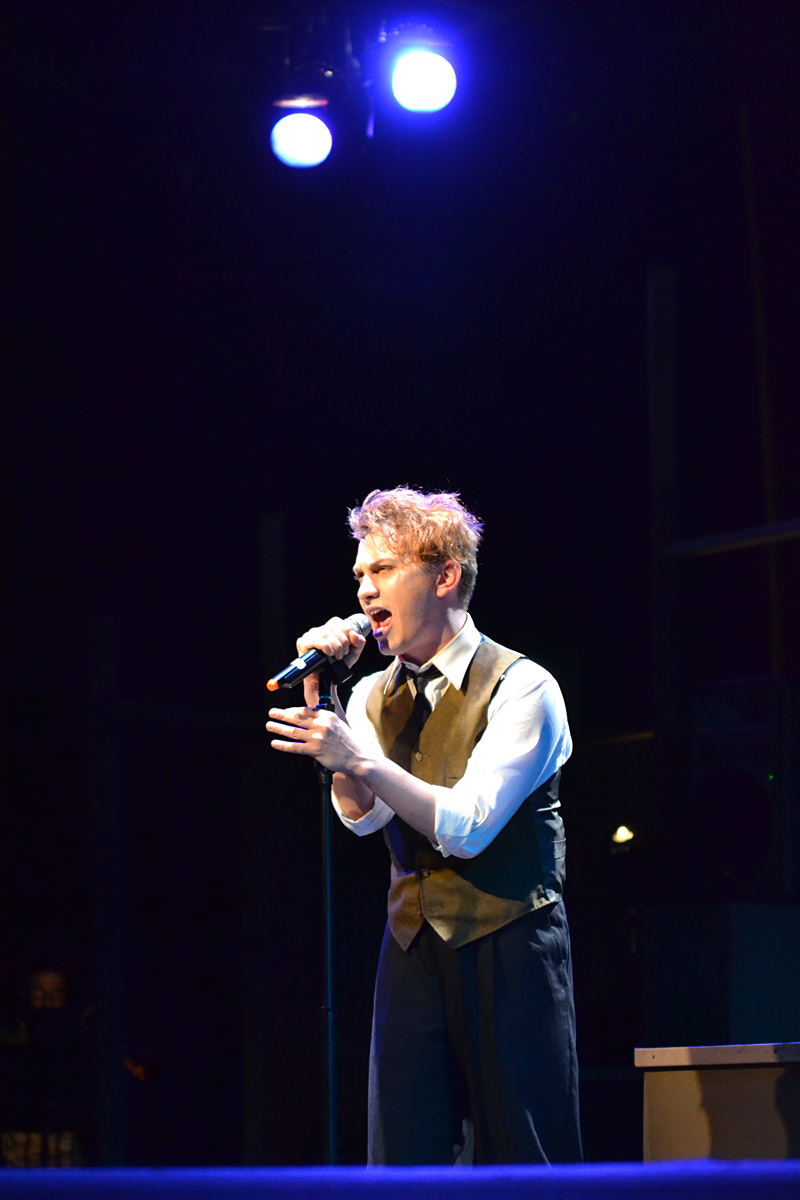In the eagerly awaited Seattle premiere of this 2006 musical, directed by Eric Ankrim, Balagan Theatre’s actors throw themselves with admirable commitment into its overheated hysteria, boot-on-neck unsubtlety, and deck-stacking self-importance. Steven Sater’s Spring Awakening borrows, but does not update, a hectoring 1892 play by Frank Wedekind (the German names are unchanged, and students write on slates with chalk). Under the microscope are three teens—free-thinking Melchior, sheltered Wendla, and the borderline-nuts Moritz. Their enemies, and eventual conquerors, embody sexual repression (the mother who refuses to teach Wendla about reproduction, with tragic results), academic pressure (the cane-wielding professor who holds Moritz back, w.t.r.), and general clueless sadism (practically everyone else, w.t.r.).
If these points needed to be made back then, what’s the use today of a show that criticizes, with fiery self-righteousness, the moral strictures of 1892? Unless you’re trying to suggest they still apply, which they don’t—not at this cartoonish intensity, and certainly not among the subset of Americans who go to theater. The heavy-breathing self-absorption of Spring Awakening‘s teens remind me above all of their exact opposites—that branch of the Christianist right that’s recently discovered the pleasures of victimhood, claiming the existence of people who disagree with them as a religious-freedom violation. There’s nothing wrong with a wallow in adolescent angst, I suppose, if it’s therapeutic. Even the ugly stereotypes of the two gay characters—given just one three-minute scene with no connection to the rest of the plot—are too ludicrous to be offensive. (They’re basically the two guys from Hitchcock’s Rope, one corrosively cynical, the other a corrupted innocent.)
What is offensive is the show’s handling of an issue as grave and destructive today as in Wedekind’s time, physical and sexual abuse, which is trivialized in every possible way. Again the abused character, like the two gay boys, drops in out of nowhere and back out, never again mentioned. Again she gets one song (by composer Duncan Sheik), inadequate to the task. And—the salt in the wound—her scene is followed and cheapened by a gratuitous and ridiculous one in which the neurotic Wendla asks to be beaten too so she knows how it feels.
In the world of Spring Awakening, being raped by your father equals getting unjustly flunked out of Latin class—just another dish in this buffet of trauma, another opportunity for the audience to congratulate itself on being so much more evolved than the show’s empty villains. Which makes this not just a dumb and embarrassing show, not just a badly conceived and executed one, but a meretricious and contemptible one.
And it won eight Tonys. The musical is dead.







